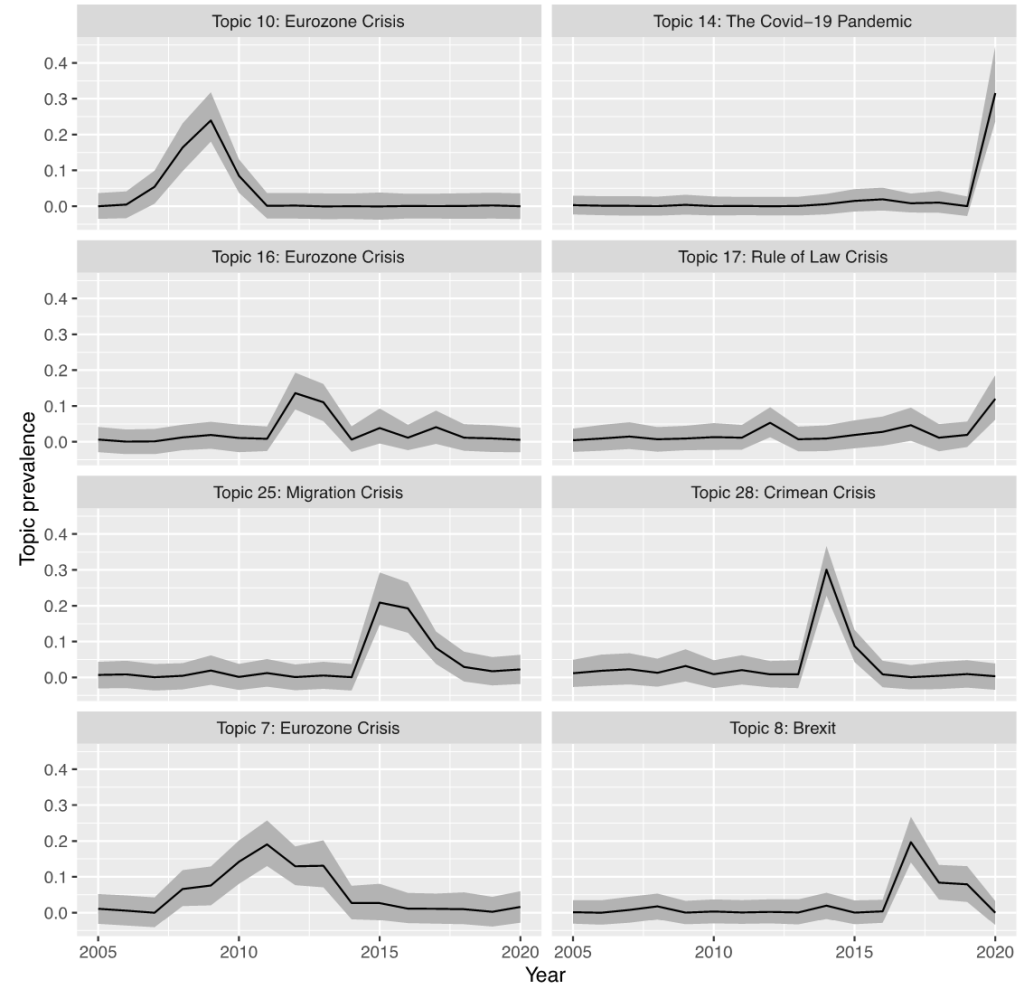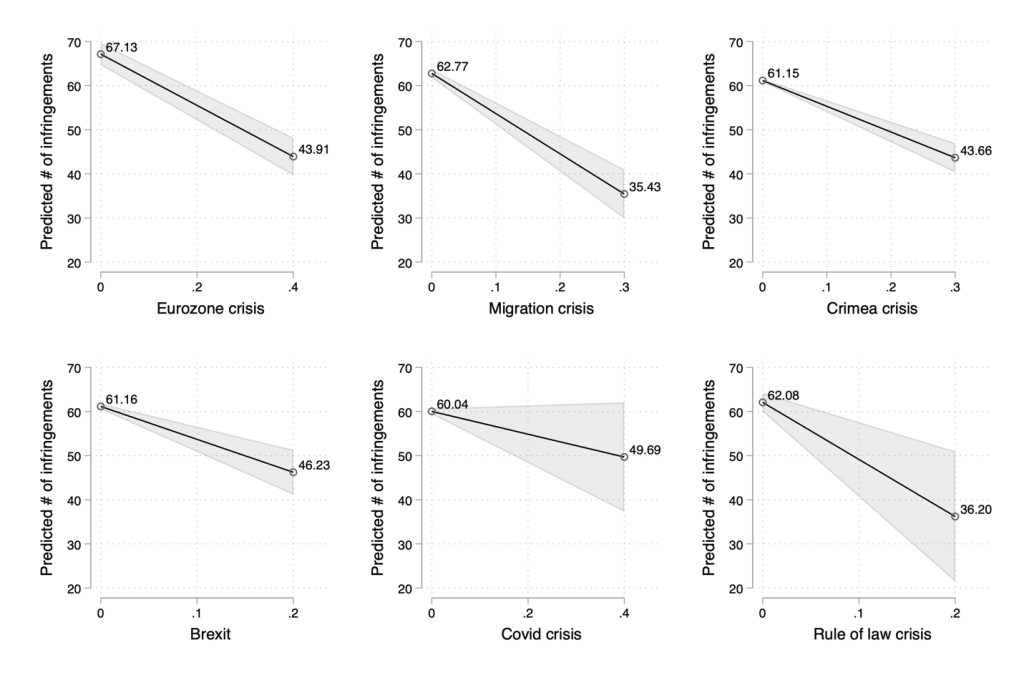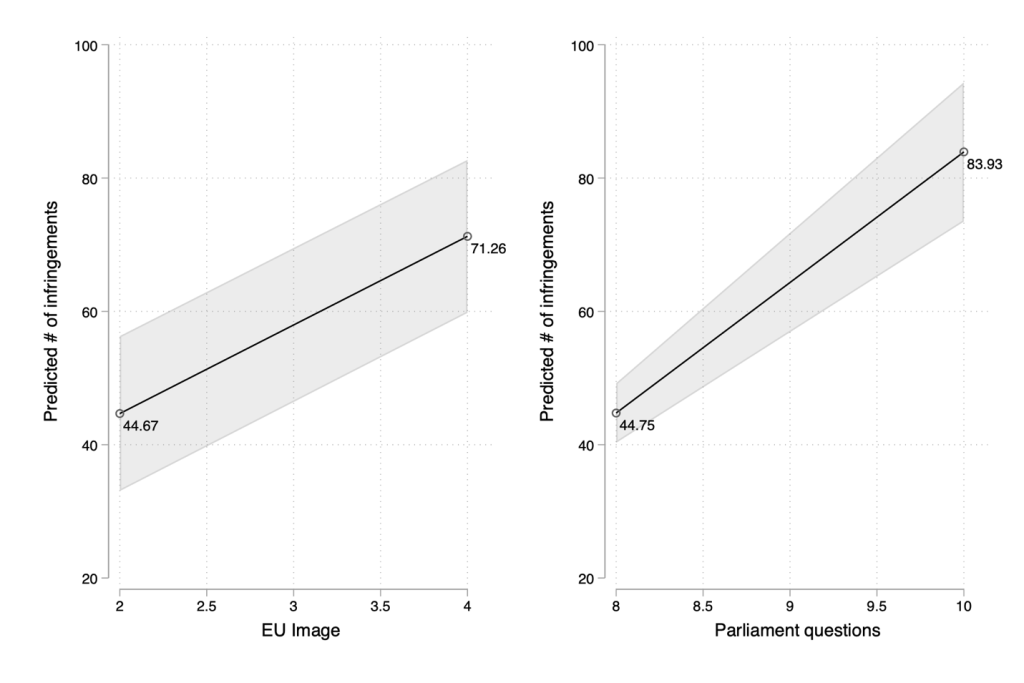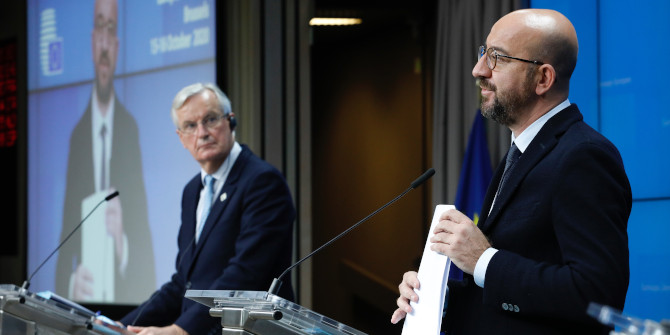The European Commission has played an important role in responding to crises over the last two decades. Kari Waters examines whether these extra responsibilities have undermined the Commission’s capacity to ensure national governments comply with EU law.
The last two decades have seen the EU face a seemingly endless series of crises. First it was the sovereign debt crisis, then the migration crisis, followed by Russia’s invasion of Crimea, Brexit, the COVID-19 pandemic and Russia’s war on Ukraine.
Climate change is also threatening the continent, with countries facing unprecedented fires, floods and heat waves. Perhaps even more troubling is the growing rule of law crisis, driven by countries like Hungary and Poland, where democratic norms and institutions have been weakened and executive power has become more concentrated. What affect do all these crises have on the functioning of the European Union?
Jean Monnet, one of the EU’s founders, famously argued that “Europe will be forged in crises and will be the sum of the solutions adopted for those crises”. For many years, scholars accepted and worked under this assumption. However, in recent years, some scholars are now asking whether that claim can be supported with historical evidence.
Crises like the migration crisis only highlighted the weaknesses of the EU’s migration policies and even these were unenforced in some countries. Economies in southern Europe have not yet experienced a full recovery from the debt crisis, even many years later. This suggests that far from strengthening European integration, crises have the potential to undermine it.
One area for concern is the effect of crises on EU law enforcement. The European Commission, as the executive and bureaucratic arm of the EU, has many responsibilities, including the mandate to monitor and enforce EU law within member states. But because of its highly technocratic staff, the Commission is frequently tasked with designing and advancing proposals to address the effects of crises. This means the Commission’s other functions may be vulnerable during crises. With a limited staff and budget, crises may force the Commission to prioritise some tasks over others.
Measuring crises turns out to be tricky. Often, there is debate about the exact beginning or end of a crisis. Furthermore, effects likely do not remain the same over the entire span of a crisis. For example, at the beginning of the COVID-19 pandemic, many resources were needed to provide adequate masks, to develop and produce a working vaccine and to provide resources to medical systems under great strain. While COVID-19 is still an issue, it is not nearly as threatening now as it was in the beginning.
In a new study, I measure the effect of crises on the Commission using structural topic models and minutes from the Commission’s weekly meetings. As shown in Figure 1, the amount of time spent on each crisis varies over time and the peaks and dips occur about when we would expect.
Figure 1: Commission crises topics from 2005-2020
Note: For more information, see the author’s accompanying paper at European Union Politics.
When it comes to enforcing EU law, infringements are the main tool used to get noncompliant states to change their laws, with the threat of financial penalties if they fail to do so. To understand how crises affect Commission enforcement, I examine the relationship between the number of infringements launched by the Commission with the amount of time the Commission spent discussing crises. As shown in Figure 2, the number of infringements is associated with a meaningful and substantial decline during times of crisis. This should be concerning as it suggests that during crises, states are more likely to get away with breaking EU law.
Figure 2: Marginal effects of crises on infringement counts 2005-2020
Note: For more information, see the author’s accompanying paper at European Union Politics.
However, crises do not have to be deterministic. It is not a forgone conclusion that crises will lead to less enforcement. Other relevant actors can shape Commission enforcement, including the European Parliament and European Union citizens.
One way the European Parliament can affect enforcement is with written questions. Members of the European Parliament have the right to send written questions to the Commission and the Commission is required by law to provide a written response within three weeks. As shown in Figure 3, more letters are correlated with more infringements. These letters likely either inform the Commission of previously unknown violations or signal to the Commission that the Parliament wants the Commission to respond to specific events.
Public opinion is also correlated with infringements. When citizens are more Eurosceptic, the number of infringements decreases. This is because national governments face electoral risks. If they push through EU policy changes that the public doesn’t like, they may be voted out of office. Conversely, if the public has a high opinion of the EU, leaders will want to keep their voters happy, making it more likely that EU policies become state policies.
Figure 3: Marginal effects of letters and Euroscepticism on infringement counts 2005-2020
Note: For more information, see the author’s accompanying paper at European Union Politics.
In all likelihood, the EU will continue to experience crises in the near future. Global warming is not going anywhere anytime soon and it looks like Russia isn’t either. Illiberal leaders are being voted into power all across Europe, threatening democratic stability and harming those from marginalised communities. While there is strong evidence that crises can constrain the Commission and limit its ability to enforce EU law, there is also strong evidence showing that other actors can influence the Commission and thereby affect changes in Commission enforcement.
For more information, see the author’s accompanying paper at European Union Politics
Note: This article gives the views of the author, not the position of EUROPP – European Politics and Policy or the London School of Economics. Featured image credit: roibu / Shutterstock.com








Thank you for this:
It seems from what you are saying,
including the abstract,
that the number of infringements launched by the Commission is *high* when the public image of the EU is good in a country,
and *low* when the EU is impopular,
so as not to cause reputational damage, also to the national government?
While understandable politically,
that really doesn’t say much for equal justice in the EU then!